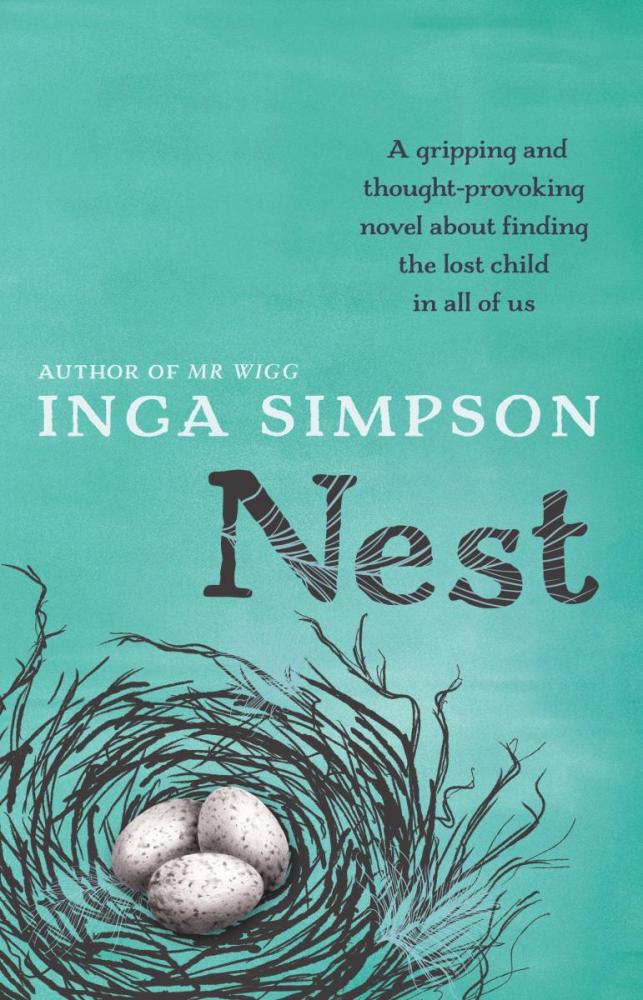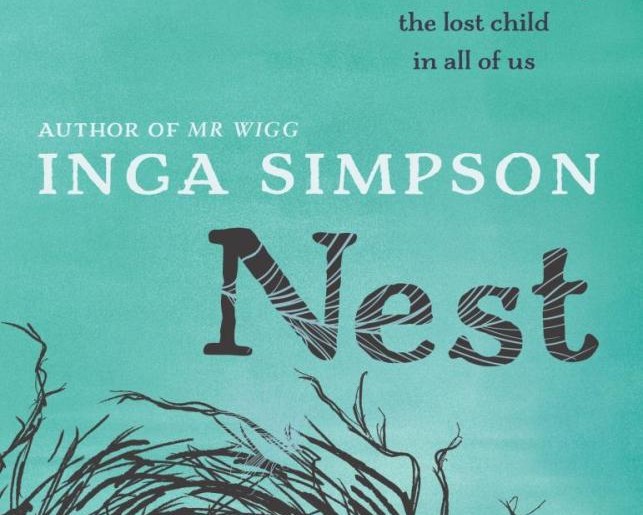 There were several occasions while reading Inga Simpson‘s new novel, Where The Trees Were, when I would close my eyes and feel the sensual complexity that vividly conjured up the landscape of rural Australia. From the raucous cacophony of flights of cockatoo to the, the rasping cadences of the wind in the beautiful gum trees, the taste of red earth dust in your mouth, the tantalizing anticipation of pregnant rainclouds. The novel opens in 1987 in a small rural community in the Lachlan Valley in Australia’s New South Wales. Jay and her friends Kieran, Josh, Ian and his younger, tagalong brother Matty, lead a near idyllic existence, disappearing at sunup roaming extensively across the wide although before returning tired and dust caked at dinner time.
There were several occasions while reading Inga Simpson‘s new novel, Where The Trees Were, when I would close my eyes and feel the sensual complexity that vividly conjured up the landscape of rural Australia. From the raucous cacophony of flights of cockatoo to the, the rasping cadences of the wind in the beautiful gum trees, the taste of red earth dust in your mouth, the tantalizing anticipation of pregnant rainclouds. The novel opens in 1987 in a small rural community in the Lachlan Valley in Australia’s New South Wales. Jay and her friends Kieran, Josh, Ian and his younger, tagalong brother Matty, lead a near idyllic existence, disappearing at sunup roaming extensively across the wide although before returning tired and dust caked at dinner time.
Inga Simpson’s Nest resonates with an infectious appreciation of nature that is becoming her trademark
One of my favourite books of 2013 was Mr Wigg by Inga Simpson, a gentle fable about loss and family set in the stone-fruit heart of rural Australia. It was Simpson’s debut novel so it was with a mixture of anticipation and some trepidation (was Mr Wigg a quirky, one-off success?) that I read her follow-up, Nest, recently released.
loss and family set in the stone-fruit heart of rural Australia. It was Simpson’s debut novel so it was with a mixture of anticipation and some trepidation (was Mr Wigg a quirky, one-off success?) that I read her follow-up, Nest, recently released.
Sticking with what she obviously knows intimately Nest is again set in rural Australia. Jen, an artist and teacher, has been drawn back to her roots and bought a remote, dilapidated house deep in the forest near the small town where she grew up. For days on end, the only human she sees is Henry, a local schoolboy who she is tutoring in sketching and art. Whilst welcoming his cheerfulness and haphazard enthusiasm, solitude for Jen is no hardship. The native birds, her “forest orchestra” are the most welcome and intimate of neighbours infiltrating every
My Top Ten books for 2013: A wonderful year of reading
For the first time I kept a list of the books I read during past year and looking back over the months, 2013 was a rich year for literary pleasure. In total I read 76 books. That averaged out at about six books a month I only managed three in June yet nine in May (that’s the luxury of holidays). Apart from reading all the books on the Booker Prize shortlist there was no particular rhyme or reason to my selections. Sometimes I would just see a book in a book shop, other times it was the book selected by my book club. Sometimes it was a review or a news item in a newspaper or magazine or because an author was appearing at a literary festival I was attending (Dublin, Hay-on-Wye in England and Byron Bay in Australia).
Despite all that, I when I read other people’s end-of-year Best Of book lists I was stunned at the number I had not even heard of let alone all those wonderful authors whose books are sitting on my bedside table or in my e-reader but which I haven’t got around to reading yet. I did live up to the promise I made myself to read more collections of short stories and was richly rewarded. I read a pathetically small number of non-fiction which I hope to remedy in 2014. There were one or two which, if it were not for the “I’ve started so I’ll finish” rule, would have immediately been relegated to the bottom of the book pile but thus is the delicious serendipity of reading.
So, before the clock ticks over to a new day and new year, here is my top ten for 2013
Review: Mr Wigg by Inga Simpson
 One of the great joys of being an avid reader is the serendipitous discovery of a little gem, a book you probably would normally have never found and read if you hadn’t gone to that book festival, or popped into that bookshop, or sat opposite that person on the train.
One of the great joys of being an avid reader is the serendipitous discovery of a little gem, a book you probably would normally have never found and read if you hadn’t gone to that book festival, or popped into that bookshop, or sat opposite that person on the train.
I had not heard of Mr Wigg by Inga Simpson before I attended the recent Byron Bay Writers Festival on the lovely New South Wales coast in Australia. It’s probably not surprising as she was part of a panel discussion called Bursting on the Page: fabulous first fiction.
I wouldn’t put Mr Wigg in the same category as Burial Rites (Hannah Kent’s powerful first novel) or We Need New Names by NoViolet Bulawayo, which is long-listed for the Booker Prize, but I loved its gentleness and its enchanting whimsical riff.
